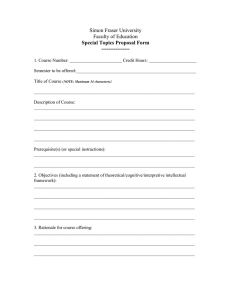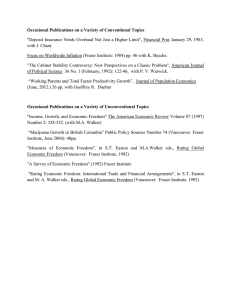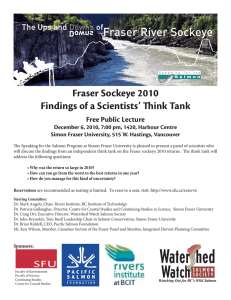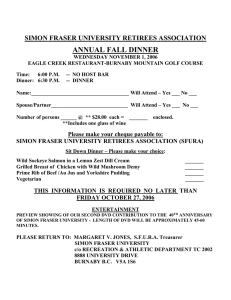The Employer Adviser
advertisement
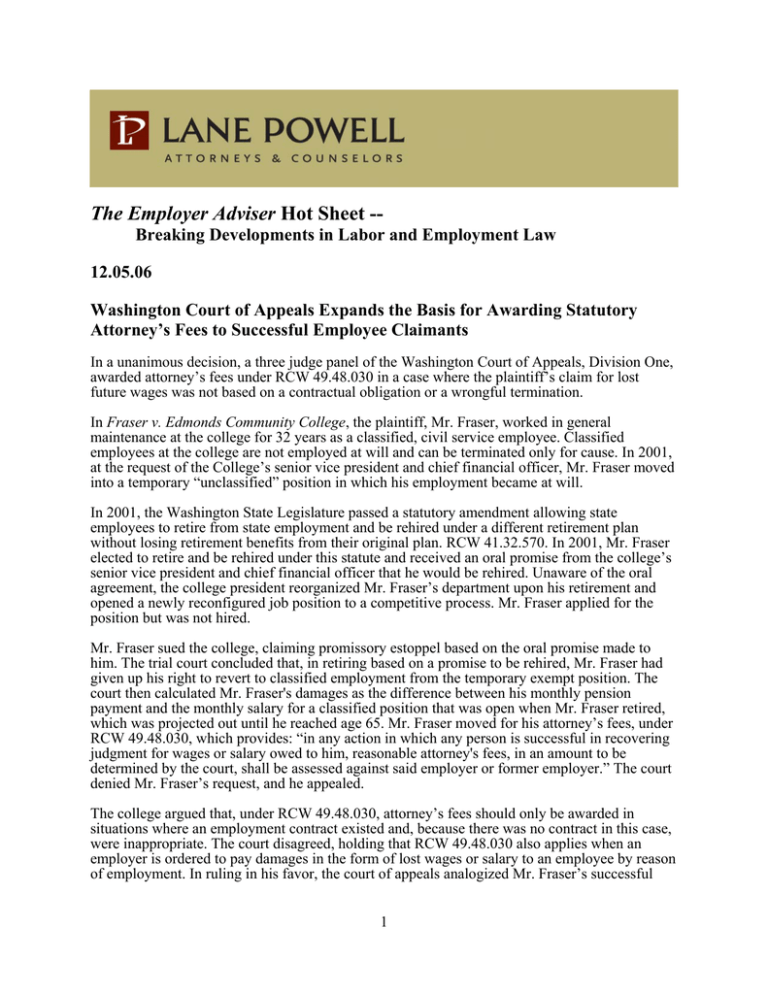
The Employer Adviser Hot Sheet -Breaking Developments in Labor and Employment Law 12.05.06 Washington Court of Appeals Expands the Basis for Awarding Statutory Attorney’s Fees to Successful Employee Claimants In a unanimous decision, a three judge panel of the Washington Court of Appeals, Division One, awarded attorney’s fees under RCW 49.48.030 in a case where the plaintiff’s claim for lost future wages was not based on a contractual obligation or a wrongful termination. In Fraser v. Edmonds Community College, the plaintiff, Mr. Fraser, worked in general maintenance at the college for 32 years as a classified, civil service employee. Classified employees at the college are not employed at will and can be terminated only for cause. In 2001, at the request of the College’s senior vice president and chief financial officer, Mr. Fraser moved into a temporary “unclassified” position in which his employment became at will. In 2001, the Washington State Legislature passed a statutory amendment allowing state employees to retire from state employment and be rehired under a different retirement plan without losing retirement benefits from their original plan. RCW 41.32.570. In 2001, Mr. Fraser elected to retire and be rehired under this statute and received an oral promise from the college’s senior vice president and chief financial officer that he would be rehired. Unaware of the oral agreement, the college president reorganized Mr. Fraser’s department upon his retirement and opened a newly reconfigured job position to a competitive process. Mr. Fraser applied for the position but was not hired. Mr. Fraser sued the college, claiming promissory estoppel based on the oral promise made to him. The trial court concluded that, in retiring based on a promise to be rehired, Mr. Fraser had given up his right to revert to classified employment from the temporary exempt position. The court then calculated Mr. Fraser's damages as the difference between his monthly pension payment and the monthly salary for a classified position that was open when Mr. Fraser retired, which was projected out until he reached age 65. Mr. Fraser moved for his attorney’s fees, under RCW 49.48.030, which provides: “in any action in which any person is successful in recovering judgment for wages or salary owed to him, reasonable attorney's fees, in an amount to be determined by the court, shall be assessed against said employer or former employer.” The court denied Mr. Fraser’s request, and he appealed. The college argued that, under RCW 49.48.030, attorney’s fees should only be awarded in situations where an employment contract existed and, because there was no contract in this case, were inappropriate. The court disagreed, holding that RCW 49.48.030 also applies when an employer is ordered to pay damages in the form of lost wages or salary to an employee by reason of employment. In ruling in his favor, the court of appeals analogized Mr. Fraser’s successful 1 claim of wrongful refusal to hire to a successful claim of wrongful termination, in which an award of future lost wages will trigger an award of attorney’s fees. What This Means for Employers Employers should be aware that, although the language of RCW 49.48.030 suggests that it was intended only to cover situations where an employer wrongfully withholds wages or salary already earned by the employee, it has been interpreted to apply broadly in other situations when an employee recovers damages representing lost wages or salary. Unless reversed by the Washington Supreme Court, Fraser stands for the proposition that, in a broadening variety of situations, when employers are required to pay lost wages or salary – whether past or future – they will also be required to pay the plaintiff’s attorney’s fees. For more information, please contact the Labor and Employment Law Practice Group at Lane Powell: 206.223.7000 Seattle 503.778.2100 Portland employlaw@lanepowell.com www.lanepowell.com We provide The Employer Adviser Hot Sheet as a service to our clients, colleagues and friends. It is intended to be a source of general information, not an opinion or legal advice on any specific situation, and does not create an attorney-client relationship with our readers. If you would like more information regarding whether we may assist you in any particular matter, please contact one of our lawyers, using care not to provide us any confidential information until we have notified you in writing that there are no conflicts of interest and that we have agreed to represent you on the specific matter that is the subject of your inquiry. © 2006 Lane Powell PC Seattle - Portland - Anchorage - Olympia – Tacoma - London Lawyers for Employers ™ 2
